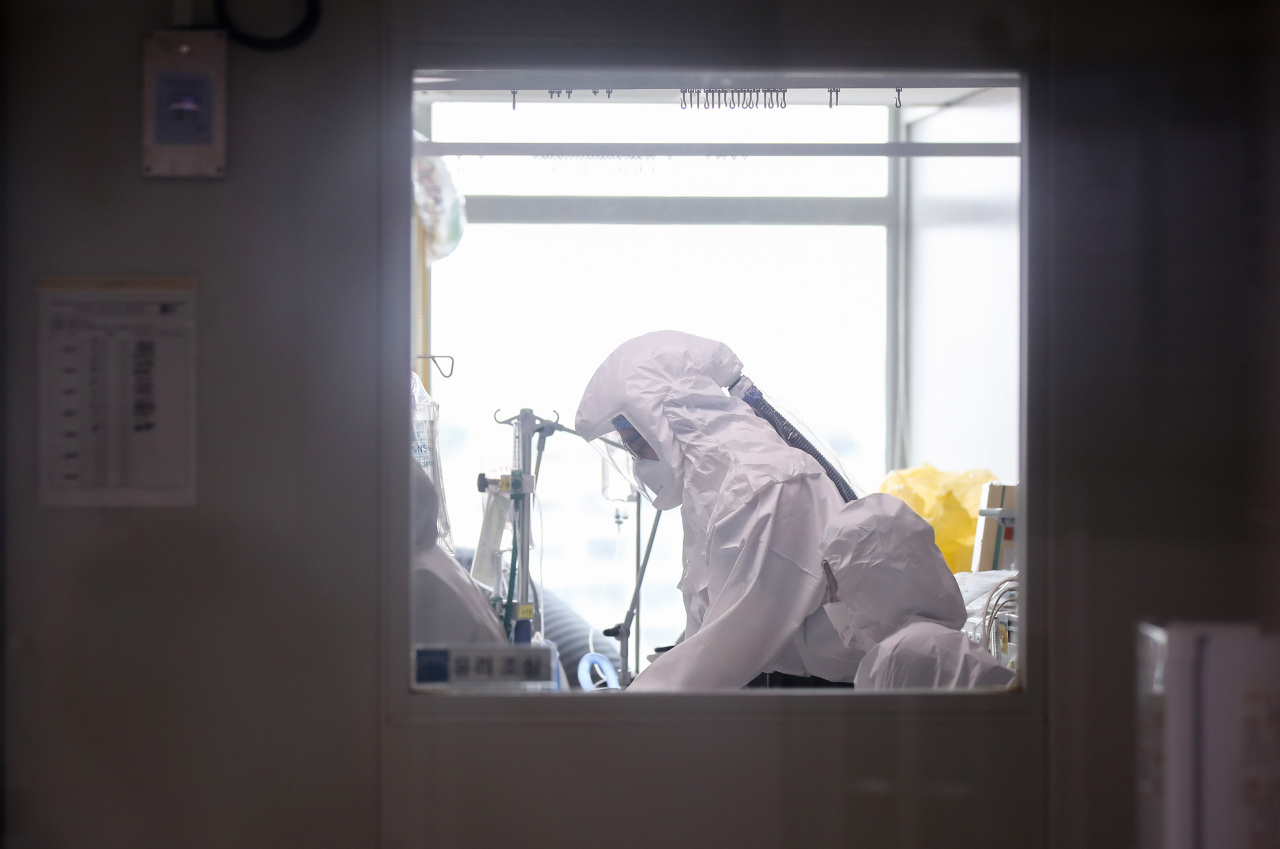As infections rise, concerns emerge over collapse of medical system
Some hospitals face shortage of beds for critically ill patients; woman dies due to poor care in treatment facility, petitioner says
By Shin Ji-hyePublished : Aug. 16, 2021 - 12:28

There are fears that the medical system could collapse under the weight of the fourth wave of COVID-19, with some hospitals reporting bed shortages and a woman dying at a treatment center while waiting for care.
As of Sunday at midnight, the daily number of newly confirmed cases was 1,556, the highest Sunday figure ever recorded in South Korea. The number of confirmed cases now stands at 225,481.
Of the newly confirmed cases, 1,493 were locally transmitted and 63 were imported, with 857 of the coronavirus-positive individuals from the Greater Seoul area. The number of coronavirus patients in quarantine increased by 450 to 27,116.
As infections continue to surge, hospitals in some cities are reporting shortages of beds for critically ill patients. Of the 810 beds set aside for very sick coronavirus patients nationwide, only 293 were empty as of Saturday, officials said.
In Daejeon, there are 14 beds for critically ill coronavirus patients and only one was available. In Sejong, there are four such beds and only one was left.
As concerns about bed shortages emerge, the government is pushing for the additional designation of beds for patients whose condition is critical or semi-critical.
Dr. Lee Jae-gap, a professor at Hallym University Medical Center, said hospitals in the Greater Seoul area used to handle very sick patients from outside the region when bed shortages occurred. But as hospitals in the metropolitan area reach full capacity, hospitals in other parts of the country will have difficulty handling serious cases, Lee said.
“Not only do we have to hurry to expand the beds, but we should also try to prevent the current pandemic from getting worse to prevent the collapse of the medical system.”
On Saturday, someone filed a petition on the Cheong Wa Dae website to complain that an infected woman had died at a clinic without receiving proper treatment.
“My mother, 58, was confirmed to have the coronavirus on the morning of Aug. 1 and entered a treatment center in Yeonsu-gu, Incheon,” the petition said.
According to the petitioner, in the treatment center, two patients were housed together in a small room and no medical equipment was installed. The medical team was managing patients only by phone.
“They only used antibiotics and fever reducer, and if the patient didn’t get in touch, (medical staffs) would contact another patient in the same room to check their condition.”
“How can someone die at a treatment center?” the petitioner asked. “I want to know what happened to cause my mother’s unfair death.”
Because more than 3,500 people expressed support for the petition, an Incheon City official responded.
“The condition of the deceased deteriorated sharply while she was at the living treatment center,” the official wrote, “and she died at dawn ahead of a transfer to the hospital. We are further investigating the exact circumstances.”
Meanwhile, the nation’s vaccination efforts are slowly underway.
Authorities said that as of Sunday at midnight, 17,721 people had been newly inoculated and a total of 22.38 million people had received their first doses, constituting 43.6 percent of the nation’s total population.
The daily number of those fully vaccinated rose by 5,559 to reach 9.7 million people, or 19 percent of the population.



















![[Today’s K-pop] Treasure to publish magazine for debut anniversary](http://res.heraldm.com/phpwas/restmb_idxmake.php?idx=642&simg=/content/image/2024/07/26/20240726050551_0.jpg&u=)